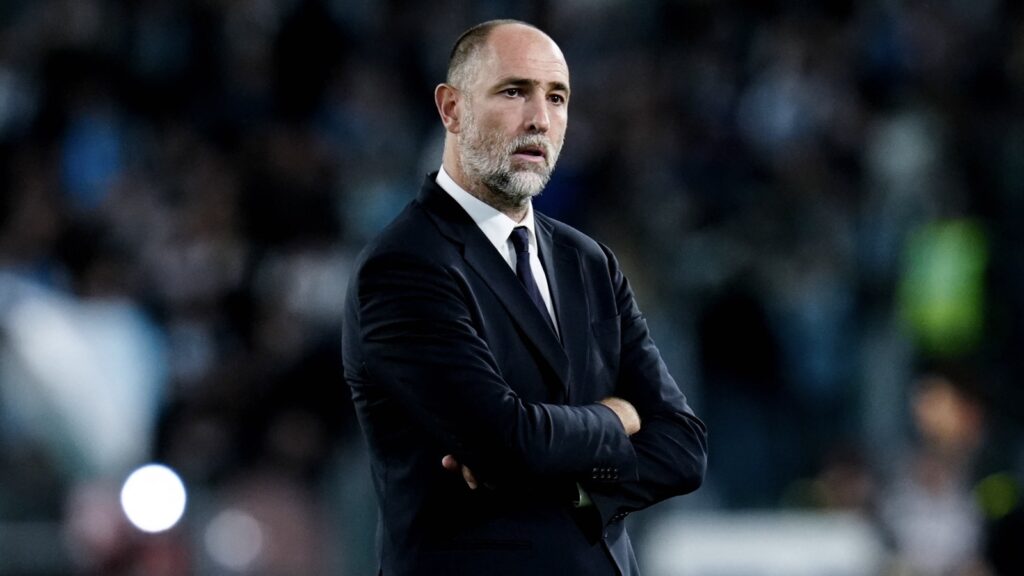Since the end of Maurizio Sarri’s contract (August 8, 2020) until Igor Tudor’s dismissal on October 27, 2025, Juventus has changed coaches four times.
The numbers speak for themselves: four “top-tier” coaches in just over five seasons, with constant transition periods. In 128 years of Juventus history, only 10 coaches have been dismissed; of these, three have been relieved of their duties in the last year and a half.
Here’s the points average for each manager since Allegri’s first cycle:
- Allegri (cycle 1): 271 appearances → 2.27 points/game
- Pirlo: 52 appearances → 2.15 points/game
- Sarri: 52 appearances → 2.12 points/game
- Allegri (cycle 2): 149 appearances → 1.84 points/game
- Motta: 42 appearances → 1.67 points/game
- Tudor: 24 appearances → 1.58 points/game (the second-lowest ever, behind only Zaccheroni)
These data show not only an increasing frequency of manager changes, but also a decreasing sporting efficiency.
Quick Timeline (Key Dates)
- August 8, 2020 — Sarri leaves Juventus; Andrea Pirlo appointed manager.
- May 28–29, 2021 — Massimiliano Allegri returns to lead the first team.
- June 12, 2024 — Thiago Motta officially appointed manager with a three-year contract.
- March 23, 2025 — Motta relieved of his duties; Igor Tudor replaces him.
- October 27, 2025 — Igor Tudor dismissed after a poor start to the season (the first manager of the season to be dismissed); Massimo Brambilla appointed interim manager. (LINK)
The corporate context that amplified the crisis
Behind the frequent turnover lies a deeper problem: governance instability and accounting issues that have acted as a brake on sports planning. The internal political climate changed radically with the resignation of the entire Board of Directors, including Andrea Agnelli and the historic top management, at the end of November 2022, amidst the ongoing legal proceedings. That upheaval removed key points of reference and made the club more vulnerable to performance fluctuations.
Added to this was the lengthy legal battle over so-called capital gains: between January and spring 2023, the FIGC and the sports courts imposed sanctions, and the appeals resulted in a succession of fines, reductions, and judicial reversals, keeping Juventus in limbo for much of the following two years. At various points, the team saw points deducted, and the case involved top management.
In the fall of 2025, the financial situation was once again under the spotlight: the club announced it had been notified of a UEFA investigation into a possible violation of financial fair play rules for the three-year period 2022–2025. This further risk could translate into financial or sporting sanctions in the coming months.
Technical costs and problems that have arisen
The constant changes have produced concrete effects:
- Interruption of technical and tactical projects (each coach brings different ideas and structures, the squad hasn’t had time to adapt);
- Loss of attractiveness on the market (corporate uncertainty and potential sanctions reduce the club’s ability to retain or attract top players);
- Identity confusion: the “Juventus DNA” of continuity, a culture of results, and youth planning has been eroded by emergencies.
These factors have contributed to transforming traditional winning cycles into reactive, short-term micro-management strategies (changing managers as a response to an immediate crisis rather than as part of a strategy).
Tudor’s Possible Successors
Immediately following Tudor’s dismissal, the most likely names as possible successors are:
- Luciano Spalletti: the experienced coach, an international profile with many successful seasons. He is considered the ideal “big name” to restore tactical order. It should be added that Spalletti appears to have been offered an offer of only eight months’ contract: a clear sign that the club is not yet fully committed to a multi-year project, but is prioritizing short timelines and an immediate response.
- Raffaele Palladino: younger, known for developing less well-equipped squads and with experience at Italian clubs; a profile that could be attractive for a reconnection with the national team and a project geared towards financial sustainability.
- Roberto Mancini: cited as an alternative option, a former international with international experience; however, his high salary and costs could be a deterrent.
- Zinedine Zidane: although not mentioned as an immediate favourite in the last few hours, he remains a “dream” name for the fans and the management, thanks to his global calibre.
From a practical standpoint:
- Spalletti brings experience and immediate credibility, but his era could be costly and with high expectations from the fans.
- Palladino (more “planning” and less expensive) could be a choice consistent with the need for internal reconstruction and the idea of enhancing the squad rather than revolutionizing it.
- Mancini and Zidane remain more “prestigious” options, but they present risks in terms of budget, expectations, and adapting to a phase of profound relaunch.
Bold decisions and a credible plan are needed.
The cost isn’t just a sporting one: Juventus is paying for managerial decisions, transfer decisions, and weak governance. To return to being what it is, three intertwined steps are needed: managerial clarity and stability, audits and accounting transparency resolved, and a multi-year sporting vision that prioritizes project and culture over responsiveness to scandals. As long as the emergency remains the priority, changes in management will be merely temporary fixes.
